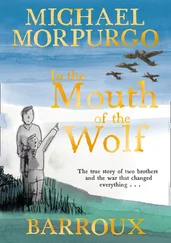All around the long room, wherever I looked, I found adults gazing at me with sad eyes or simple curiosity. My cousin Jeff, five years older, widely read and worldly, explained my situation to me.
“You’re an orphan now.”
“I am?”
“Yeah. Your parents are both dead, see.” Here he gestured to the caskets, lest I forget the cause of the gathering. “So they’re all kinda sorry for you, and you’re interesting to ’em.” He shrugged as though this made no sense whatsoever, and then added, “It’s neat to be an orphan, though.”
“How come?”
His mouth made a little “o” and a faint gleam of excitement came into his eyes as he warmed to his task. “Well, you’ll probably get more presents and stuff on your birthday because they feel sorry for you. When’s your birthday?”
“March 27.”
“Oh.” His face fell. “They’ll probably forget by then. Act real sad when that time comes. Christmas, too.” I assured him that I would do whatever was necessary. He thought for a moment and added, “Don’t eat. They always think something’s wrong when you don’t eat.”
I looked to the front of the room where the Dorseys stood to one side and the Flynns to the other, and visitors and mourners stopped to speak to them all. While the adults were thus occupied, I joined my cousins, especially Matt, and did what children have always done at wakes, namely, played tag, explored the funeral home, and invaded the privacy of other families in mourning.
There was a second chapel in the building, and a wake in progress in this one as well, and we stole in and stared at the deceased in that one, a man named Albert Schuss, according to the sign at the entrance—and I can no sooner forget his name than the occasion when I learned it—a shrunken-faced old man whose funeral clothes bagged on him. We compared him with his wife, a short fat lady who sat a few feet from his casket, and decided that Albert’s wife had precipitated his demise by refusing to share her food. For her part, Mrs. Schuss was pleased to see us: she seemed to think we were distant nephews.
When we returned to the proper chapel, I found myself caught in the dour gaze of Grandma’s brother, my great-uncle Martin. Despite their humor and love of song, the Irish have a tendency to moroseness, indeed they revel in it; some would say the pursuit of lugubriousness is a national mission no less important than the cause of Irish Freedom, and there is in each Irish family one person who gives himself over fully to the development of this ancient and honored Celtic trait. Uncle Martin’s long solitary life had given so fine an edge to his fatalism that his presence at a party was feared, like snow at Easter.
Not a cynic so much as a professional grumbler, he believed—so I had learned both from eavesdropping on my relatives and from Uncle Martin’s unprompted ruminations—that the world had come steadily unraveled since the days of the ancient Greeks, that most of the miracles in the Bible were exaggerated or sanitized—for example, he believed that Moses had indeed parted the Red Sea but that the ensuing flood had killed not only Pharaoh’s Army but a good portion of the Israelites, in particular the aged, the slow, and the obese—and that the earth would be hit at any moment by a comet.
Now he stared at me as though I had been found wanting, and when I met his gaze he jerked his head in the direction of the caskets.
“Not much of a wake, is it.”
“It’s not?”
“Well, it’s fine for the way they do them now.” He gave me a sad look. “Ah, you’re too young to know the difference. In my day, we had wakes . We knew how to give the deceased a fitting send-off, you see. That’s the purpose, after all, to show the dead what you thought of them. My father’s wake lasted four days. This was in the Old Country, of course, not here in the land of the Income Tax and the Board of Health. At least if we had a Board of Health, I never knew about it. We held our wakes in the home of the deceased.”
I shot a quick look in the direction of the caskets and tried to picture them in Grandma’s house. This seemed inexpressibly bizarre, and he read my expression.
“Oh, now, we didn’t keep them there forever, lest they go a bit ripe on you, but we showed them their proper respect and after you got used to the fact that they didn’t say anything, why they were lovely company. And this provided the mourners with an opportunity to speak their feelings to ’em, you see. They’d relax with a bit of nice whiskey and work up the nerve to talk to them.”
“To the dead people?”
“Well, who else? But here in America where we’re supposed to be free but still wear the yoke of servitude, why it’s against the law to hold the wake of your kin in his own house, and would you mind telling me where the sense of that is?”
I couldn’t, of course, but he didn’t really want to be interrupted. He went into the next stage of his soliloquy, growing wistful.
“It wasn’t always this way. We had our freedom at one time. When I first came here, in 1911, there was no income tax. There’s a godless idea, lad, taxing the workingman’s wages. Then there was Prohibition.” He snorted, then paused for the sake of drama and nodded to me. “Prohibition, that great evil that fell upon the land, and we all fought it, all the people, it was grand how we all rose up.”
His face grew serious, he could have been speaking of the Easter Rising at the Dublin Post Office or of Charles Parnell, but I believe he was remembering the days when he and my grandfather had attempted to sell gin concocted in the family bathtub, and a thin, cloudy whiskey that Uncle Frank had devised in the garage behind his rooming house, Uncle Frank’s commercial ambitions unfettered by the fact that he was a policeman. It was this ill-advised venture into the world of business that earned Uncle Martin the title of “The Old Reprobate” from my grandma, his sensible sister. He was “The Old Reprobate” and Uncle Frank, who seemed to bring disaster or violence wherever he went, was “The Great Ninny” to his sister.
“It would peel the skin off your arm,” I’d heard Grandma say about Uncle Martin’s bathtub product. “It would melt your eyeballs. People nearly died of it.”
“Oh, they did not,” Uncle Martin would say, and Grandma would just say “Billy Fahey” and nod confidently.
Uncle Martin would swallow and look away with a nervous light in his eye, and eventually say, “That was just a coincidence: he always had a bad gut.”
Once or twice I’d heard them argue this way and she’d mutter about the repulsiveness of drinking something brewed in a common bathtub. When he said it was just fine, she’d say, “Do you drink your bathwater then, Martin? What would our mother have said?”
This would end the debate: the mention of their mother, dead under the sod of County Leitrim more than thirty years, was enough to silence any argument, bring quiet and calm, and I’d heard how my grandmother once, when they were all young, had stopped a fierce brawl outside the drugstore up on Clybourn by this magical incantation. No one else ever brought her up: the use of their mother’s name seemed a trump card available only to Grandma.
Uncle Tom rescued me from Martin with a wave. I went and stood beside him and watched him greet people, even people he didn’t remember. Among these people was a wizened woman I’d never seen before who nodded to us and moved on into the funeral parlor.
“Oh, Christ,” Tom said.
“Who is that lady?”
“Nobody knows, kid. She just shows up at funerals.” And in truth, during the course of my life I was to see her at a dozen or more funerals, her presence always both amusing and vaguely reassuring to me, like a tired but beloved joke.
Читать дальше












